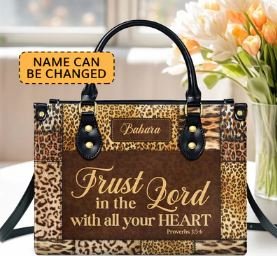Embracing the Paradox: Heritage vs. Inheritance in the Tapestry of Life
As an Amazon Associate, I earn from qualifying purchases. This page contains affiliate links. If you choose to make a purchase after clicking a link, I may receive a commission at no extra cost to you.
Visit our Holy Spirit Gear Store- - - - - ->>> HERE <<< - - - - - - New items Weekly
As I sit down to contemplate the intricate tapestry of my existence, I am drawn to the profound distinction between heritage and inheritance. These two concepts, though often used interchangeably, carry vastly different meanings and implications, echoing through the corridors of history and shaping the narratives of our lives. Join me on this introspective journey as we delve into the depths of scripture and unravel the paradox of heritage versus inheritance.
In the grand narrative of the Bible, the theme of heritage and inheritance weaves its way through the lives of its characters, painting a vivid picture of their significance. From the patriarchs of old to the disciples of Christ, each individual grappled with the tension between the heritage of their lineage and the inheritance of their faith.
In Genesis 12:1-3, we encounter the call of Abram, later known as Abraham, to leave his country and kindred and journey to a land that God would show him. This divine mandate marked the beginning of a legacy that would transcend generations, a heritage of faithfulness and obedience that continues to inspire millions today. Abraham's heritage was not merely a matter of bloodline or lineage but rather a spiritual inheritance rooted in his unwavering trust in the promises of God.
Similarly, in the New Testament, we see the apostle Paul grappling with the tension between his Jewish heritage and his newfound inheritance in Christ. In Philippians 3:4-9, Paul recounts his impressive pedigree as a Hebrew of Hebrews, a Pharisee zealous for the traditions of his fathers. Yet, he considers it all as loss compared to the surpassing worth of knowing Christ Jesus as Lord, counting his former heritage as rubbish in light of his inheritance in Christ.
This dichotomy between heritage and inheritance is not confined to the pages of scripture but permeates every facet of our lives. We inherit not only material possessions but also cultural traditions, familial expectations, and societal norms. These inheritances, while often cherished, can also serve as chains that bind us to the past, stifling our growth and limiting our potential.
On the other hand, our heritage encompasses more than just the sum of our ancestral legacy. It embodies the values, beliefs, and principles that have been passed down to us through generations, shaping our identity and influencing our worldview. Yet, unlike mere inheritance, heritage is not static but dynamic, evolving with each successive generation as we reinterpret and redefine what it means to carry on the legacy of those who came before us.
In Psalm 16:5-6, the psalmist declares, "The Lord is my chosen portion and my cup; you hold my lot. The lines have fallen for me in pleasant places; indeed, I have a beautiful inheritance." Here, the psalmist acknowledges God as the ultimate source of his inheritance, his portion and his cup, transcending earthly wealth or status. In doing so, he recognizes that true fulfillment and satisfaction are found not in the fleeting pleasures of this world but in the eternal inheritance that God alone can provide.
As we navigate the complexities of life, we must learn to discern between our heritage and our inheritance, embracing the richness of both while remaining grounded in the truth of God's word. Our heritage connects us to our past, grounding us in the wisdom of those who have gone before us. Our inheritance, on the other hand, points us towards the future, beckoning us to embrace the promises of God with faith and courage.
In Ephesians 1:11-14, the apostle Paul speaks of the believers' inheritance in Christ, sealed with the Holy Spirit as a guarantee of our redemption. He writes, "In him we have obtained an inheritance, having been predestined according to the purpose of him who works all things according to the counsel of his will, so that we who were the first to hope in Christ might be to the praise of his glory." Here, Paul reminds us that our inheritance in Christ is not contingent on our earthly circumstances or familial lineage but is instead rooted in the sovereign will of God.
Recommended Books to Further Study the Subject
The distinction between heritage and inheritance is a profound yet often overlooked aspect of our spiritual journey. While our heritage grounds us in the wisdom of the past, our inheritance propels us towards the hope of the future. As we navigate the complexities of life, may we hold fast to the promises of God, knowing that our ultimate inheritance is found in Christ alone.















